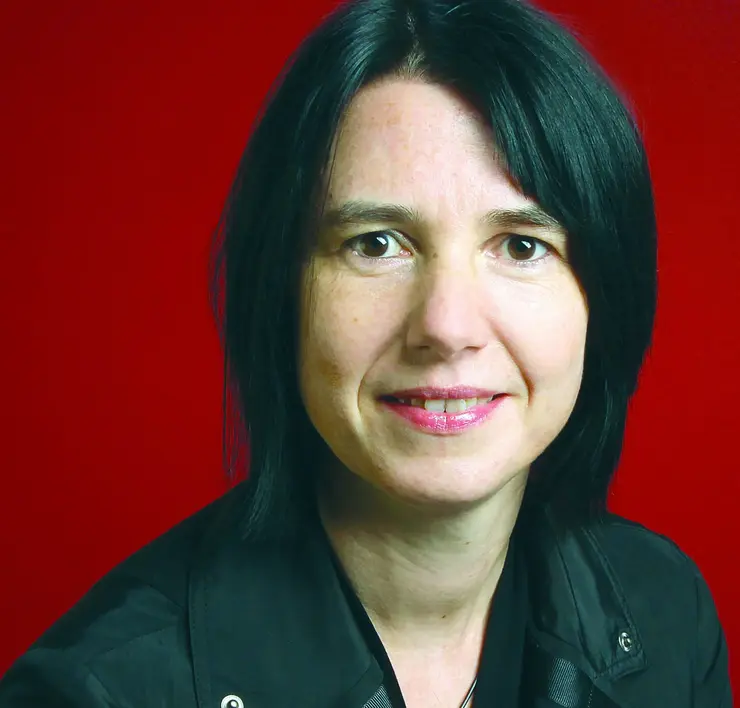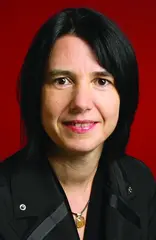"Joint cultural policy activities do not rank high on the scale"
Professor Stutz, first of all, what exactly is behind the project, or in other words: What were the idea and the goal of KuBiLa?
In "KuBiLa" we investigated structures of cultural education in rural areas in eastern Germany. Our focus was on networking and cooperation as two factors that are said to have a supporting effect, especially for educational work in structurally weak regions. However, we did not only want to investigate cooperation and networking relationships, but also to stimulate them in order to enable the participation of actors in a model region in Northern Thuringia in the sense of community research. To this end, we have developed an online map on which places of cultural education can be created and described with geo-markers (www.kubi-map.de). This creates a visibility of cultural places from the perspective of the respondents and as a first step of exchange and cooperation regional information is provided. Essential for us is the low-threshold accessibility and barrier-free design of our website: Places of informal, non-formal and formal cultural education can be entered by anyone without registration, although the entries must be approved by the KuBiLa team. All texts are also written in "easy language". And beyond that, we have used networking workshops to stimulate dialogue among cultural and educational actors in the region.
How did you approach this task, how did you proceed?
We undertook empirical research using a variety of methods. This included a secondary statistical analysis of framework conditions for cultural education in a North Thuringia model region, which included three counties: Nordhausen, Unstrut-Hainich and Kyffhäuser. The index "framework conditions of cultural education" formed for this purpose was also related to two East German comparison regions (Vogtland, Saxony; Elbe-Elster, Brandenburg). In addition, we used standardized questionnaires on cooperation and networking relationships in both the model region and the comparison regions, which were evaluated with a visual network analysis, among other things. In addition, we conducted problem-centered interviews with cultural and educational actors from the model and the comparison regions, which were evaluated on the basis of grounded theory. Results of the secondary statistical research and the network analysis can be found on our website on the map in the middle of the "research box" and the "network box"(www.karte.kubi-map.de/list).
Who all contributed to the project?
For example, Jennifer Rossi (MA Art Education) and Fabian Hagedorn (MA Political Science and LL.M.oec Business Law) were research employees who contributed significantly to the success of our project throughout its entire duration. Vanessa Rust, Justine Ludwig, Hannah Dittmann and Paul Fuchs supported us as student assistants. As advisors, Dr Michael Flohr (political education, focus on cultural policy) and Susanne Bosch, PhD (public art, art research) were present in our critical reflection of the project. Thanks are also due to Dr Dagmar Brand, research assistant at the professorship for Learning and New Media, School and Childhood Research, who supported us in the statistical analyses. We were also able to win over various cooperation partners in the region over the entire duration of the project: These include the Landesarbeitsgemeinschaft der Jugendkunstschulen Thüringen e.V., the ThILLM, the Tourismusverband Südharz Kyffhäuser e. V., the PARTHNER project of the Kulturrat Thüringen and the regional management "Perspektive Nordthüringen". As you can see, there are a lot of actors who have contributed to making KuBiLa a success.
Speaking of success: The project ended in April 2023 – what results did you achieve?
We have gained a whole range of insights that we will now publish in various publications. But what I can say at this point: The actors in cultural education consider cooperation and networking to be positive and attribute to it, among other things, an increase in the quality of their own work. However, the actors in the model region we studied face particular challenges, which result from a lack of personnel - also due to demographic developments -, double workloads, unfavorable and short-term financing, and also an overall lack of structures in cultural education. Our analysis of the reasons for and levels of cooperation and networking has shown that information exchange and project implementation are particularly relevant aspects. Joint cultural policy activities do not rank at the top of the scale, although these in particular could represent an approach to improving missing or unsatisfactory structures.
What was the greatest/best success for you personally in the context of the project work?
The cooperation in the team was very positive and I am happy that despite all the difficulties during the Corona pandemic, we managed to record quite extensive entries of cultural and educational locations on our online educational map – although we had significantly fewer opportunities to publicize our project (in person) during this time.
Were there any other hurdles or challenges that you had not anticipated at the start of the project?
There were indeed challenges primarily due to the pandemic and the associated contact restrictions, which are of course particularly important for our networking activities. For example, actions that we wanted to carry out with a research kiosk on site could only be implemented to a very limited extent. Even our activities planned with school classes - exploring cultural sites in their own environment and entering the sites on our online educational map – could in part only be realized online. It also proved to be very difficult to get in touch with schools regarding our questionnaire survey. With this problem of difficult accessibility to schools, we encountered a common problem in cultural education, which hinders the development of the potential that arises in the exchange and cooperation between school and non-school actors.
And what will happen next – are there any follow-up projects or new ideas on this topic?
I am currently in discussions with the Thuringian State Chancellery and the Digital Agency Thuringia, as well as with stakeholders from the North Thuringia model region, about transferring parts of our project, such as the interactive map. I hope that in this way we can make a further contribution to cultural education in the region and anchor our project in the long term.


